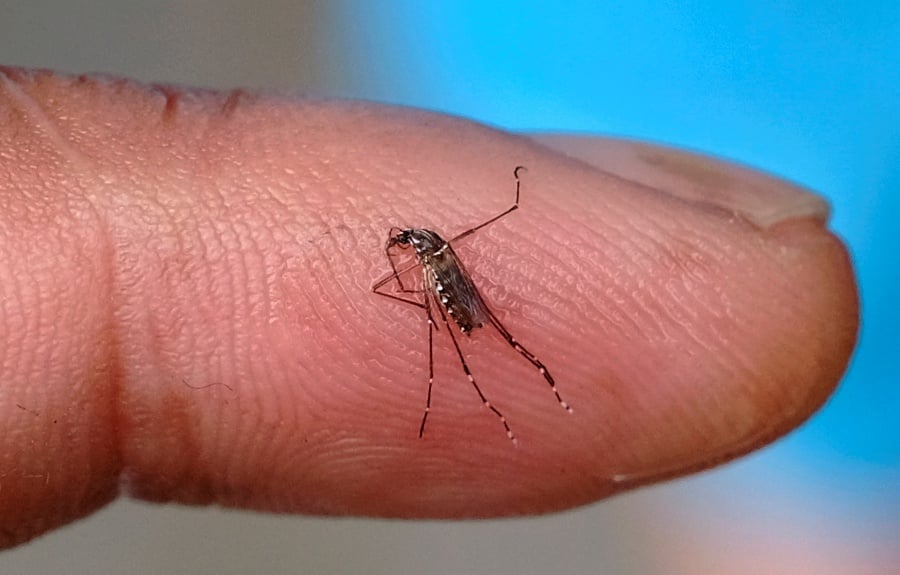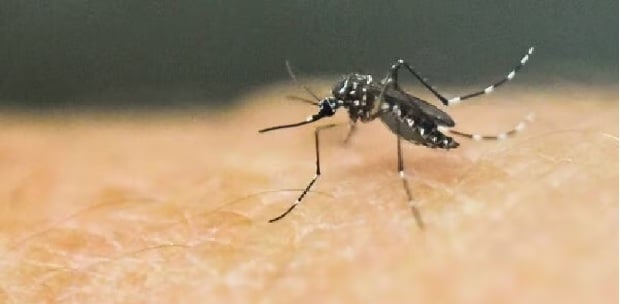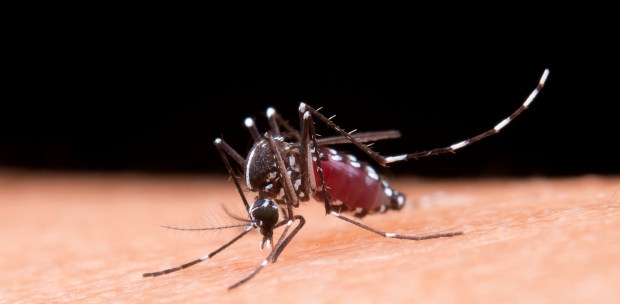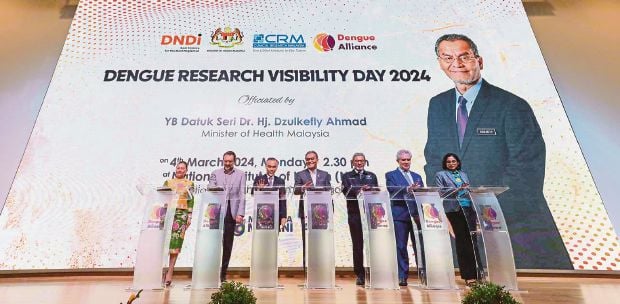KUALA LUMPUR: The Health Ministry should look into licensing the Qdenga (TAK-003) dengue vaccine, which is developed by Japan-based pharmaceutical company Takeda, for use in Malaysia, a virologist said.
Academy of Sciences Malaysia senior fellow Professor Emeritus Datuk Dr Lam Sai Kit made the call following the increase in the number of dengue cases reported in the country.
Unlike the Dengvaxia vaccine developed by Sanofi Pasteur that was cleared for marketing in 2015 in other parts of the world, he said there was no requirement for pre-vaccination testing as the Qdenga vaccine has been approved for use regardless of prior dengue exposure.
"The Health Ministry should look into the licensing of the Qdenga vaccine as soon as possible so that individuals who wish to be vaccinated can have access to it immediately," Dr Lam, who is also a research consultant at Universiti Malaya, said in a statement today.
He added that dengue was an important public health problem in the country.
Dr Lam cited the ministry's statistics which showed the number of dengue cases in the country surged to 111,417 cases as of the 48th Epidemiological Week (from Nov 26 to Dec 2 last year), a whopping increase of 91.3 per cent compared to 58,239 cases during the same period in 2022.
It was reported in December 2022, Takeda Pharmaceutical was given the green light by the European Union for its dengue fever vaccine, making it the second jab preventing the disease to be approved by the bloc.
Takeda Pharmaceutical said its vaccine was given regulatory approval by the European Commission for people aged 4 and above, regardless of their virus exposure history.
In October last year, the World Health Organisation's (WHO) Strategic Advisory Group of Experts (Sage) had recommended the use of Qdenga.
The recommendations by Sage included the introduction of the vaccine in "high dengue disease burden" as well as high transmission intensity areas.
Qdenga is also approved in Indonesia for use in individuals aged 6 to 45.
The vaccine is based on the DENV-2 strain of the dengue virus that has been weakened, with DNA from the other three serotypes added in. According to data from a pivotal trial, the vaccine can induce immune responses against all four dengue types.






